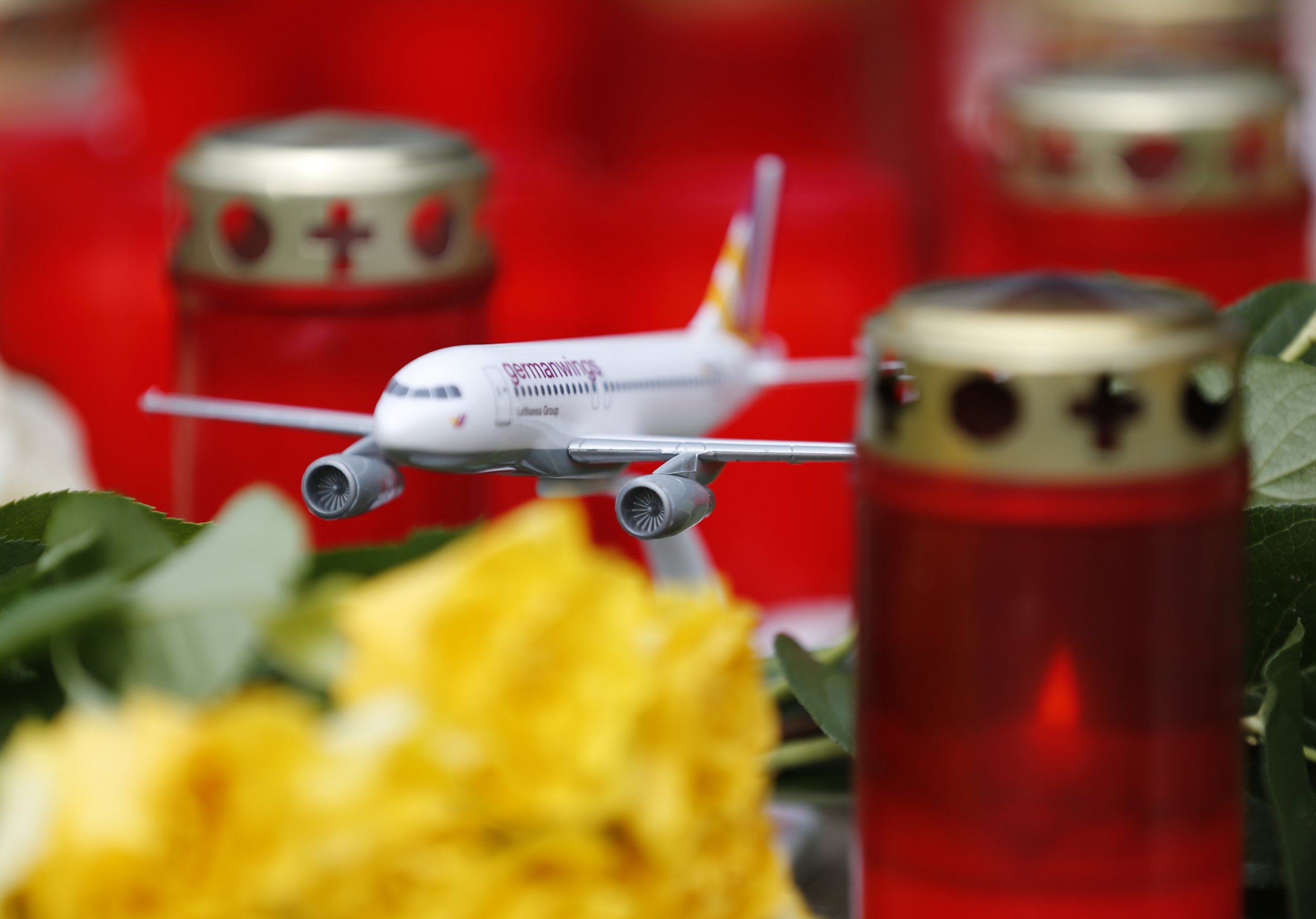
Over 600 people have died as the result of commercial aircrafts being deliberately crashed by their pilots, in cases with striking similarities to the deliberate crash of Germanwings flight 4U 9525 into the French Alps on Tuesday, at the hands of 27-year-old co-pilot Andreas Lubitz.
Investigators concluded yesterday that the crash of the German airliner which killed all 150 on board was a deliberate act by the co-pilot - Lubitz had locked the pilot out of the cockpit before plunging the aircraft into the mountains.The Marseille prosecutor Brice Robin, speaking at a news conference in Paris today, refused to describe the actions as suicide or an act of terrorism.
German prosecutors in Düsseldorf who raided Lubitz's house seized medical documents from his flat and his parents' home north of Frankfurt which indicated "an ongoing illness and suitable medical treatment". They also reported that they had discovered torn-up sick notes which were current and for the day of the crash which excused Lubitz from work.
According to the Aviation Safety Network, six commercial planes since 1976, including Germanwings flight 4U 9525, are believed to have been intentionally crashed by pilots, resulting in the deaths of 605 people. This figure does not include the 239 fatalities of last year's Malaysia Airlines Flight MH370 as the accident is still under investigation.
In one case, a plane crash in Mozambique in 2013 that killed all 33 people on board, was intentionally crashed by the pilot. His co-pilot, like the captain in this week's French Alps crash, had left the cockpit to go to the bathroom and then been locked out. According to one report, the pilot had been "very depressed" in the months leading to the crash, due to marital problems.
An investigation of another crash, that of Egypt Air Flight 990, a Boeing 767, which entered a rapid descent shortly after departing from New York's JFK Airport in 1999, concluded that the accident was caused by a deliberate act by the relief first officer.
Investigators found that the command captain had left the cockpit. According to a transcript from the cockpit's voice recorder, the captain can be heard asking from outside the cockpit's door, "What's happening? What's happening?" while the relief first officer is heard saying, "I rely on God," several times before the plane crashes. It was later reported that the pilot had crashed the plane as "an act of revenge", because he had earlier been reprimanded for sexual misconduct. The executive who had reprimanded him was on board the plane.
In 1997, a Boeing 737 en route from Jakarta to Singapore crashed in Indonesia, killing all 104 passengers and crew. While the Indonesian authorities rejected pilot suicide as an explanation for the crash, U.S. investigators concluded "that the captain may have committed suicide by switching off both flight recorders and intentionally putting the Boeing 737 in a dive, possibly when the first officer had left the flight deck," according to the Aviation Safety Network.
At the time, the BBC reported that the pilot "was in serious debt from financial market speculation and had been reprimanded by management several times in the weeks before the crash".
A report by the U.S. Federal Aviation Administration (FAA) from earlier this year reveals the extent of pilot suicides in the U.S. flying private, small aircraft. Published in February, the report explains that while deaths caused by the intentional crashing of an aircraft are "infrequent and uncommon events", between 2003-2012 there were 2,758 fatal aviation accidents in the United States of which eight were described as "aircraft-assisted suicides" which involved the intentional crashing of an aircraft.
All pilots involved in these aircraft-assisted suicides were male, with a median age of 46 years. The pilot was the sole occupant in seven of the eight aircraft that were intentionally crashed. Four of the eight pilots had been drinking, and two of the eight tested positive for antidepressants. In most of the cases, the aircraft were privately-owned small two-seater Cessna 150 aircrafts, although five of the pilots held commercial pilot licenses.
The report goes on to say that so-called aircraft-assisted suicides are "tragic, international events that are hard to predict and difficult to prevent. Factors involved in aircraft-assisted suicides may be depression, social relationships, and financial difficulties, just to name a few problems. Suicide attempts using an aircraft almost always result in pilot fatality; they also have the unfortunate potential to cause collateral damage to property and life."
One of the cases involved a 45-year-old pilot who had a history of depression and at least one suicide attempt that he had not disclosed to the FAA.
Uncommon Knowledge
Newsweek is committed to challenging conventional wisdom and finding connections in the search for common ground.
Newsweek is committed to challenging conventional wisdom and finding connections in the search for common ground.
About the writer
Felicity is a reporter for Newsweek Europe based in London. Twitter: @FelicityCapon





